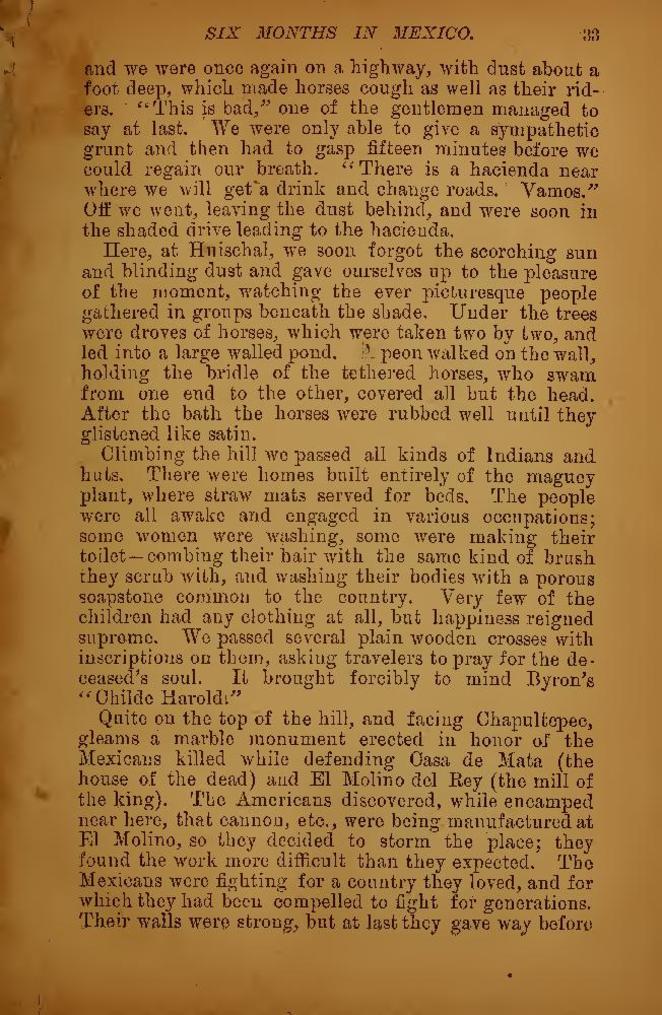and we were once again on a highway, with dust about a foot deep, which made horses cough as well as their riders. "This is bad," one of the gentlemen managed to say at last. We were only able to give a sympathetic grunt and then had to gasp fifteen minutes before we could regain our breath. "There is a hacienda near where we will get a drink and change roads. Vamos." Off we went, leaving the dust behind, and were soon in the shaded drive leading to the hacienda.
Here, at Huischal, we soon forgot the scorching sun and blinding dust and gave ourselves up to the pleasure of the moment, watching the ever picturesque people gathered in groups beneath the shade. Under the trees were droves of horses, which were taken two by two, and led into a large walled pond. A peon walked on the wall, holding the bridle of the tethered horses, who swam from one end to the other, covered all but the head. After the bath the horses were rubbed well until they glistened like satin.
Climbing the hill we passed all kinds of Indians and huts. There were homes built entirely of the maguey plant, where straw mats served for beds. The people were all awake and engaged in various occupations; some women were washing, some were making their toilet—combing their hair with the same kind of brush they scrub with, and washing their bodies with a porous soapstone common to the country. Very few of the children had any clothing at all, but happiness reigned supreme. We passed several plain wooden crosses with inscriptions on them, asking travelers to pray for the deceased's soul. It brought forcibly to mind Byron's "Childe Harold!"
Quite on the top of the hill, and facing Chapultepec, gleams a marble monument erected in honor of the Mexicans killed while defending Casa de Mata (the house of the dead) and El Molino del Rey (the mill of the king). The Americans discovered, while encamped near here, that cannon, etc., were being manufactured at El Molino, so they decided to storm the place; they found the work more difficult than they expected. The Mexicans were fighting for a country they loved, and for which they had been compelled to fight for generations. Their walls were strong, but at last they gave way before
